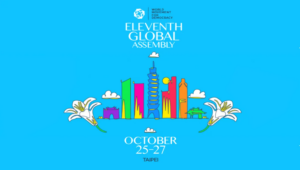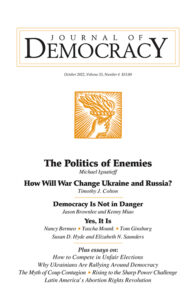In a recent speech at Ditchley Park (above), former British Prime Minister Tony Blair recently described the current moment as a global inflection point, akin to the early post-World War II years or after the collapse of the Soviet Union in 1991.
“This inflection point is, in some respects, more grave than those of 1945 or 1980. We require organization, intellectual heft, sustained focus, a sense of common purpose and a shared strategy to achieve it,” he suggested. “Western democracies need a new project that gives direction, inspires hope, and is a credible explanation of the way the world is changing and how we succeed within it.”
Today’s urgent challenge differs from earlier inflection points because yawning economic inequalities within Western democracies are today a primary driver of polarizing populist
movements, fueling distrust and seeding instability in our democratic governance systems, say analysts John Austin, the director of the Michigan Economic Center, and Elaine Dezenski, head of the Center on Economic and Financial Power at the Foundation for Defense of Democracies.
 Consequently, in addition to domestic reforms to engage and empower the economically marginalized and disenfranchised, we also need a new and more aggressive international development, trade, investment, and engagement agenda to counter authoritarians and strengthen the hand of the democratic alliance, they write for Foreign Policy:
Consequently, in addition to domestic reforms to engage and empower the economically marginalized and disenfranchised, we also need a new and more aggressive international development, trade, investment, and engagement agenda to counter authoritarians and strengthen the hand of the democratic alliance, they write for Foreign Policy:
A robust “ally-shoring” plan is the lead element of this new affirmative foreign policy. One that works to strengthen our Western economies, shore up and expand our alliances, and make a winning offer to “on-the-fence” countries to work and benefit with us versus the corrupting and dependency building development assistance “offers” emanating from China in particular. Ally-shoring also mitigates supply chain dependencies by limiting exposure of critical supply chains, where we do not want to be over-reliant on rogue regimes, open to espionage and piracy, or to have our dependencies used as a tool of political coercion.
 As Daron Acemoglu and James Robinson remind us, both global and domestic democracies are on a “narrow path” and the future is not guaranteed, Austin and Dezenski add. Which is why we in the West need a new plan.
As Daron Acemoglu and James Robinson remind us, both global and domestic democracies are on a “narrow path” and the future is not guaranteed, Austin and Dezenski add. Which is why we in the West need a new plan.
Resisting authoritarian resurgence, the impact of emerging technologies, and how to support democracy and human rights abroad will be among the principal themes of a forthcoming forum.
At a George W. Bush Institute conference on Wednesday, November 16, held in partnership with Freedom House and the National Endowment for Democracy, activists, experts, and leaders will assess threats to freedom and offer recommendations on ways to advance the cause of liberty.
CONFIRMED SPEAKERS INCLUDE:
Conversation One: The Global Struggle for Freedom
- Nicole Bibbins Sedaca, The Kelly and David Pfeil Fellow, George W. Bush Institute; Executive Vice President, Freedom House
- Daniel Twining, President, International Republican Institute
- Damon Wilson, President and CEO, National Endowment for Democracy
- Moderator: Paula Dobriansky, Under Secretary of State for Global Affairs, 2001-2009; Senior Fellow, Harvard University
 Conversation Two: Pushing Back Against the Authoritarian Threat
Conversation Two: Pushing Back Against the Authoritarian Threat
- Natalia Arno, President, Free Russia Foundation
- Rodrigo Diamanti, President, Un Mundo Sin Mordaza
- Onaba Payab, Afghan Activist, HERE EAST
- Nury Turkel, U.S. Commission on International Religious Freedom
- Moderator: Evan Mawarire, Director of Education, Renew Democracy Initiative
Conversation Three: Emerging Technology and the Future of Freedom
- Scott Carpenter, Managing Director, Jigsaw
- Samantha Hoffman, Senior Analyst, Australian Strategic Policy Institute
- Moderator: Christopher Walker, Vice President for Studies and Analysis, National Endowment for Democracy
Conversation Four: How the United States Can Help Support Democracy and Human Rights
- Michael Abramowitz, President, Freedom House
- Stephen Biegun, Former United States Deputy Secretary of State
- Charles Davidson, Co-Chair DC Forum, Global Financial Integrity
- Moderator: Chris Walsh, Deputy Director, Freedom and Democracy, George W. Bush Institute
Conversation Five: The Intersection of Human Rights and Sports
- Sally Jenkins, Sports Columnist, The Washington Post
Additional speakers to be announced. RSVP
Here’s how to get the world excited about it again. https://t.co/jph2GW4ky0
— Democracy Digest (@demdigest) October 24, 2022







